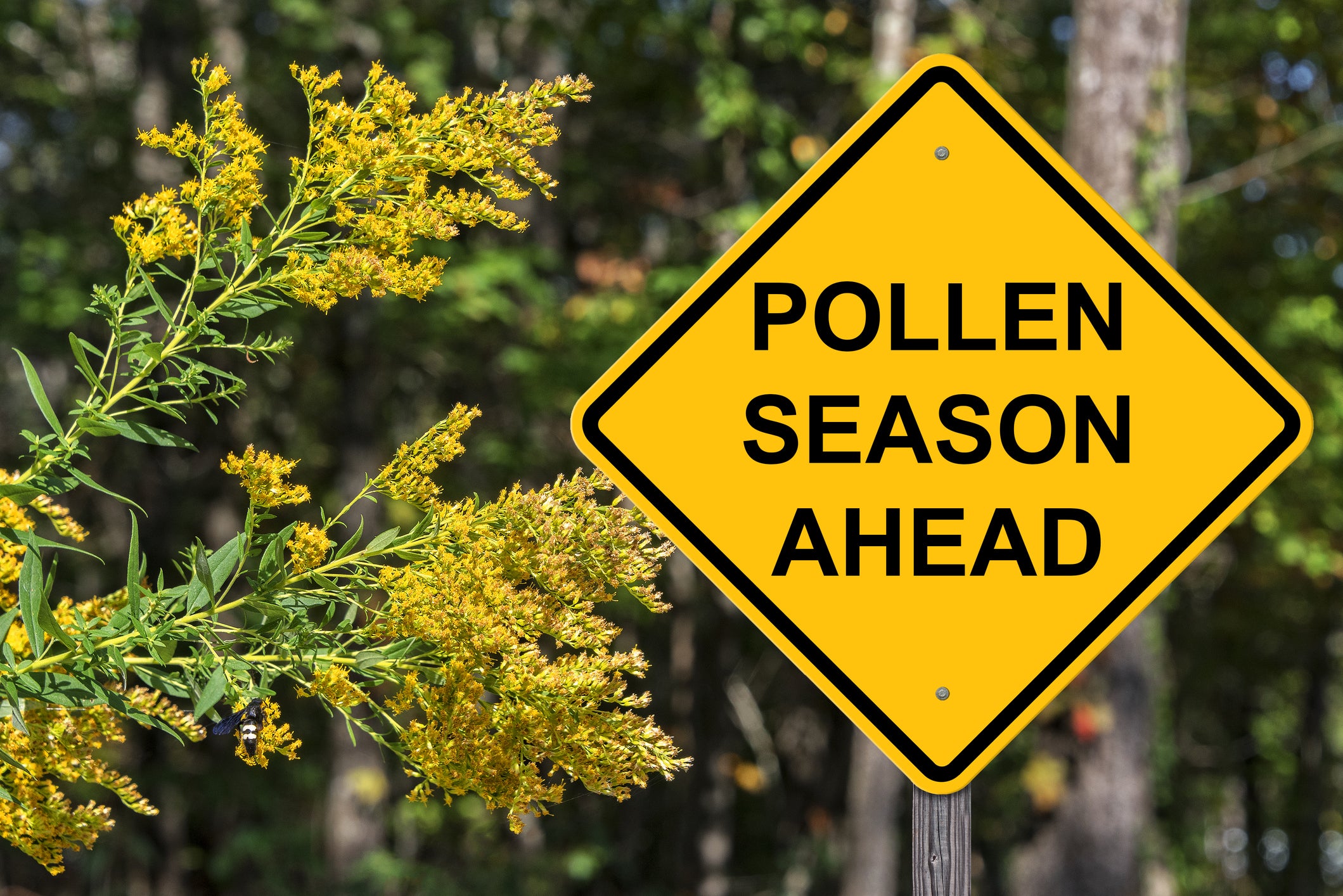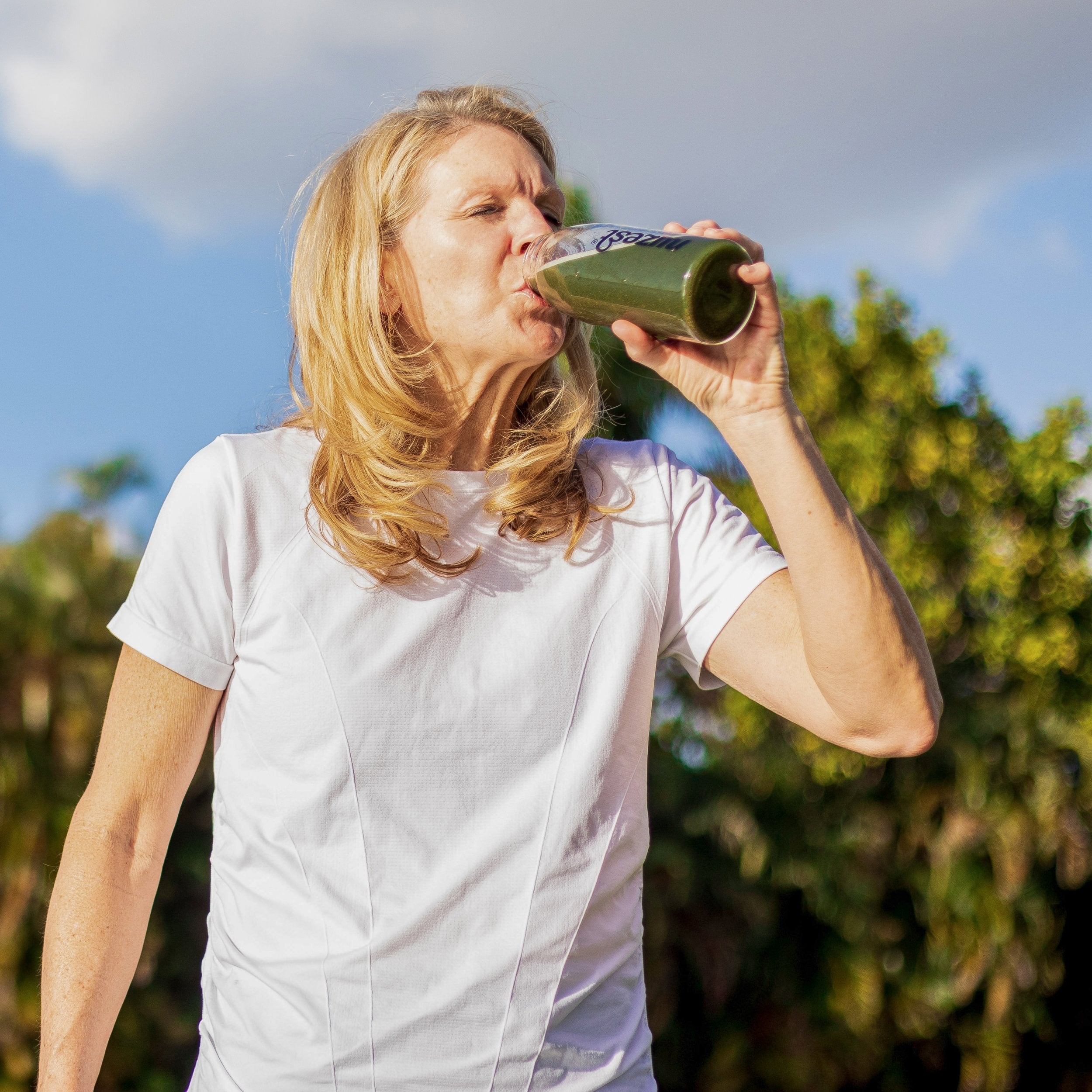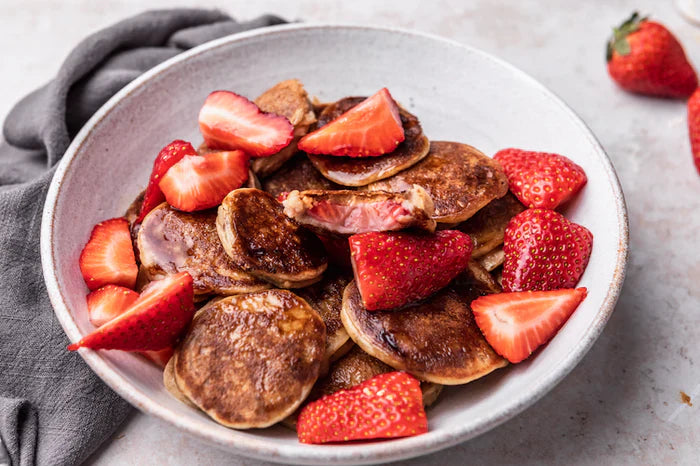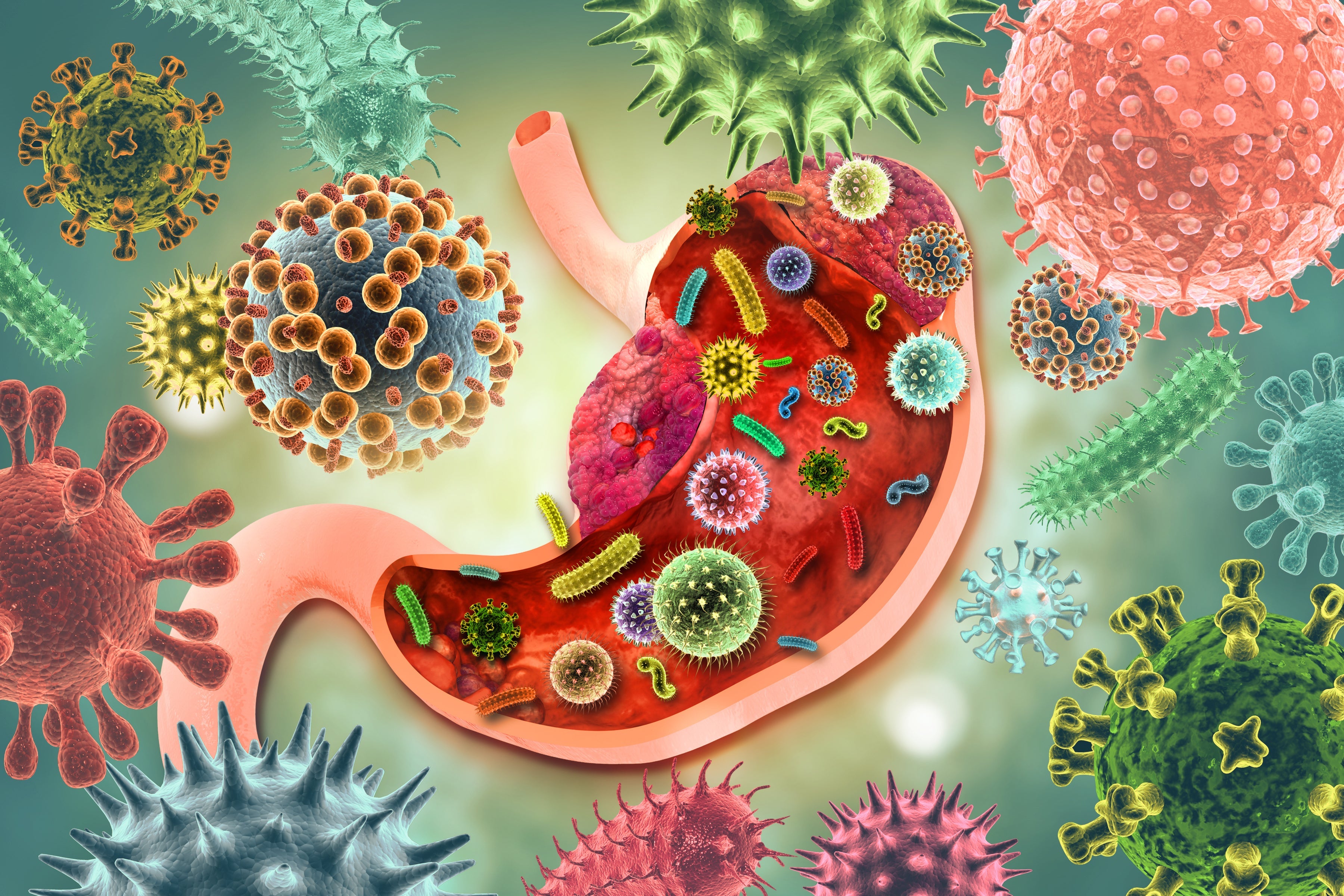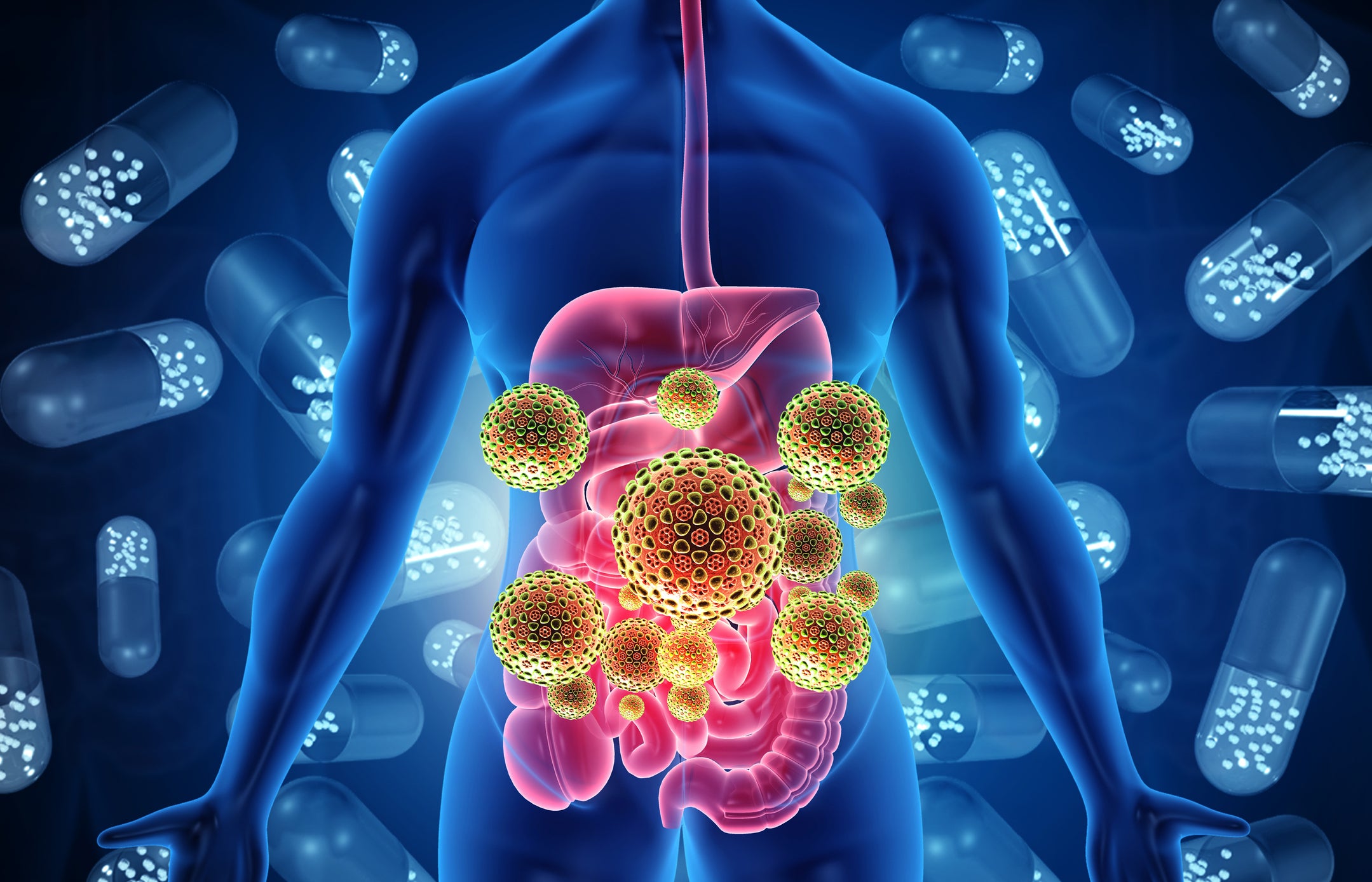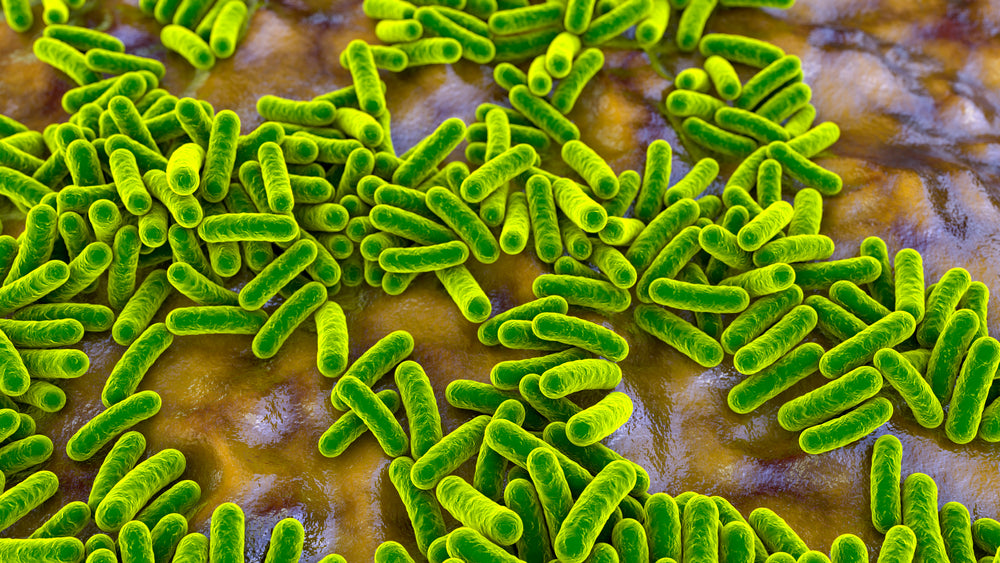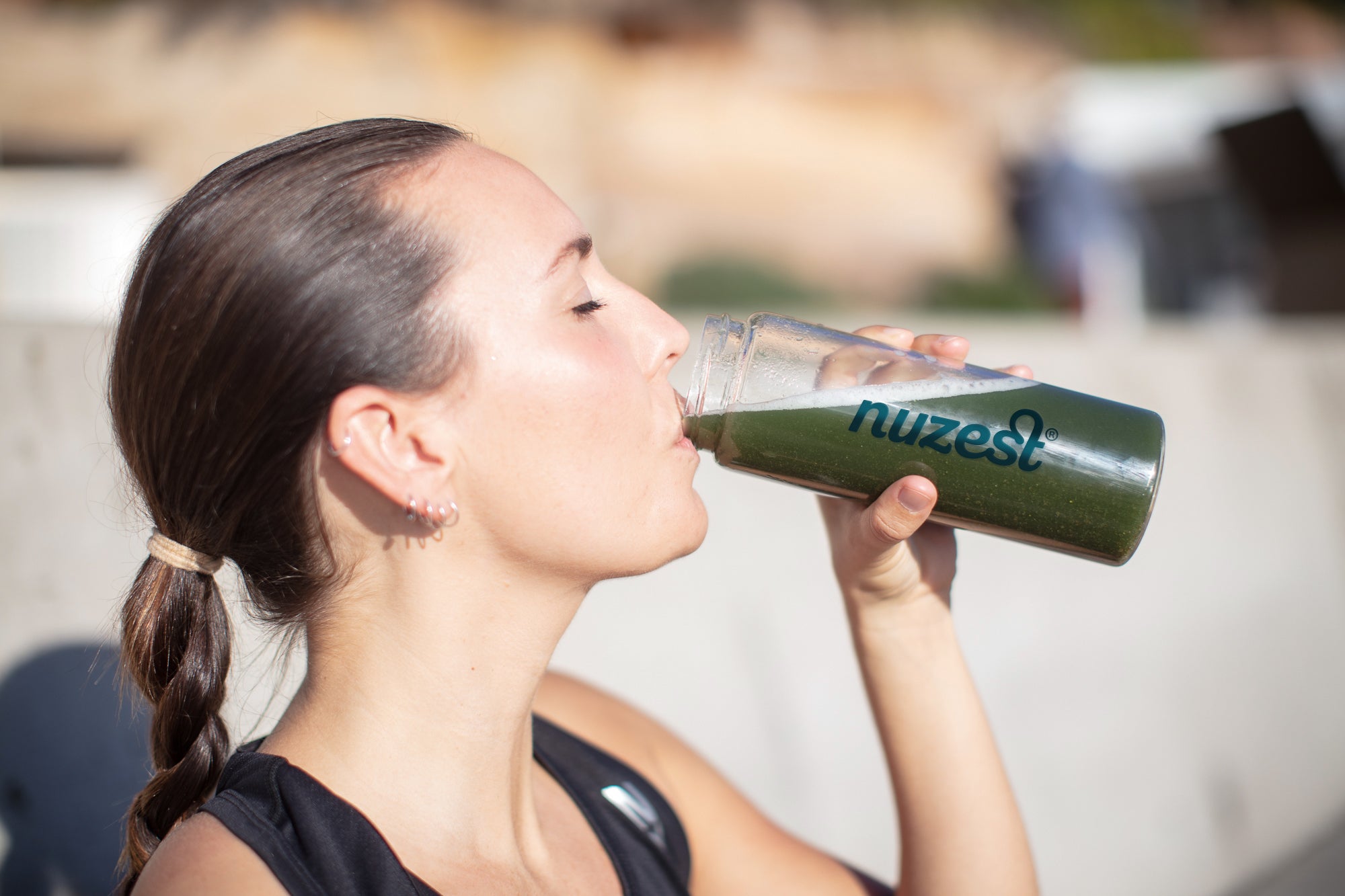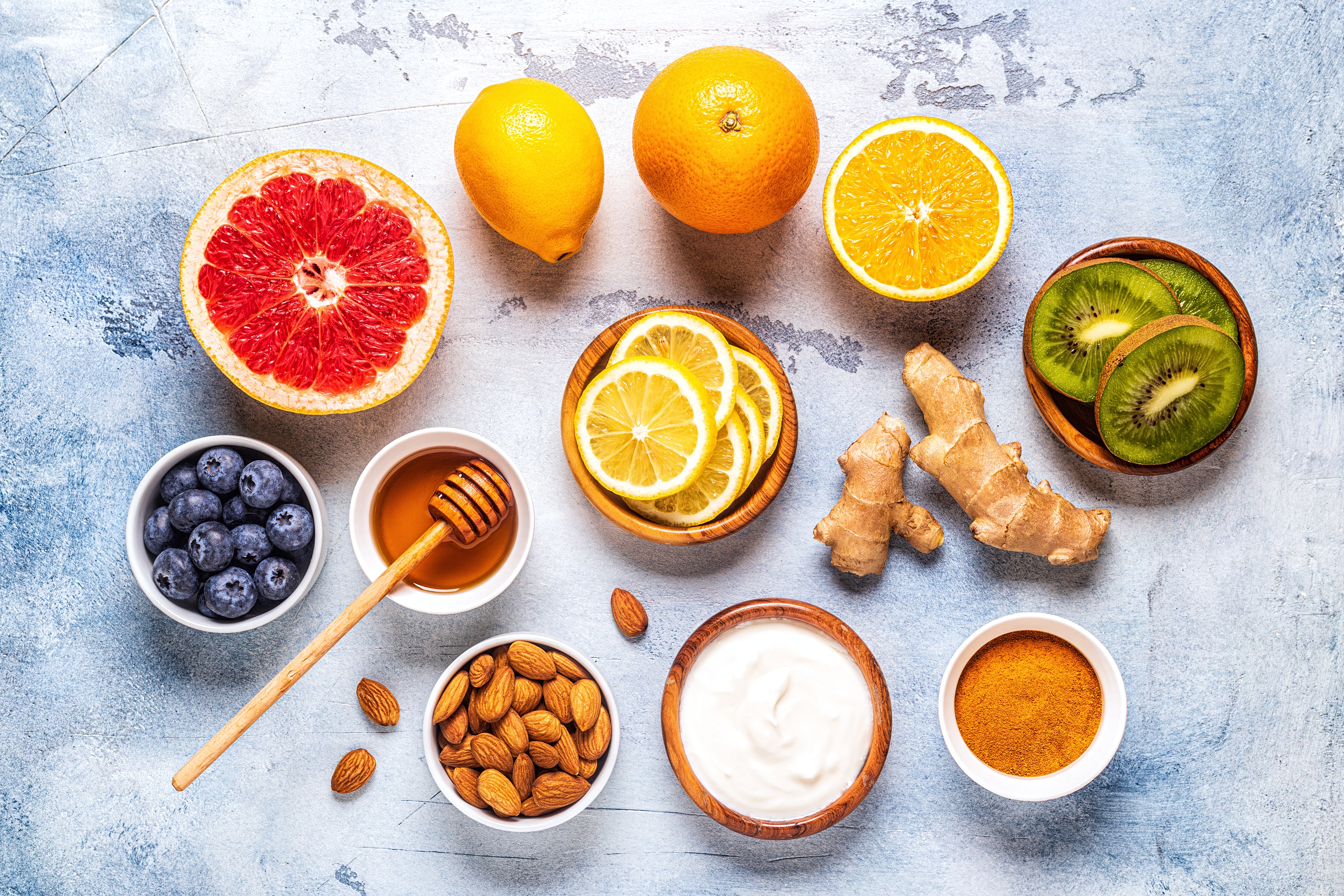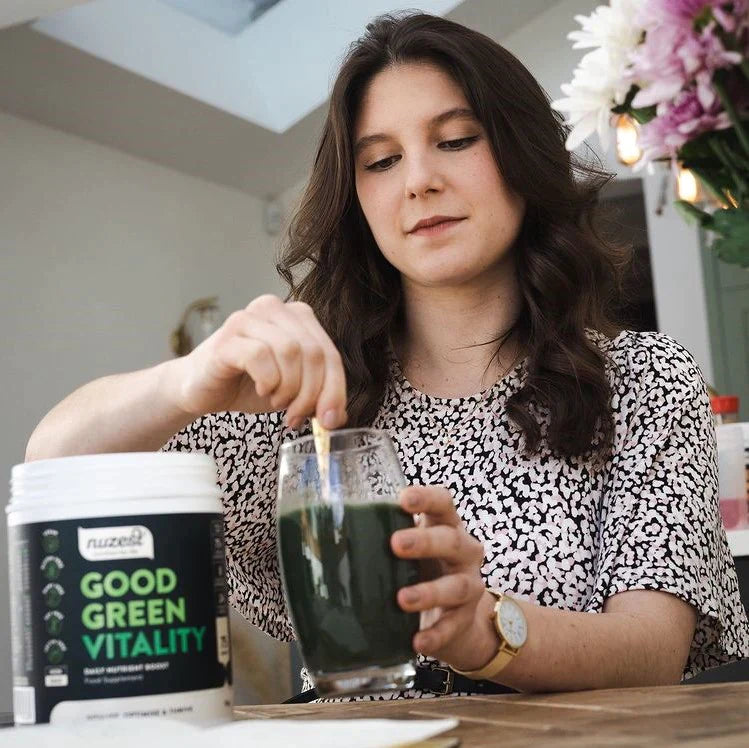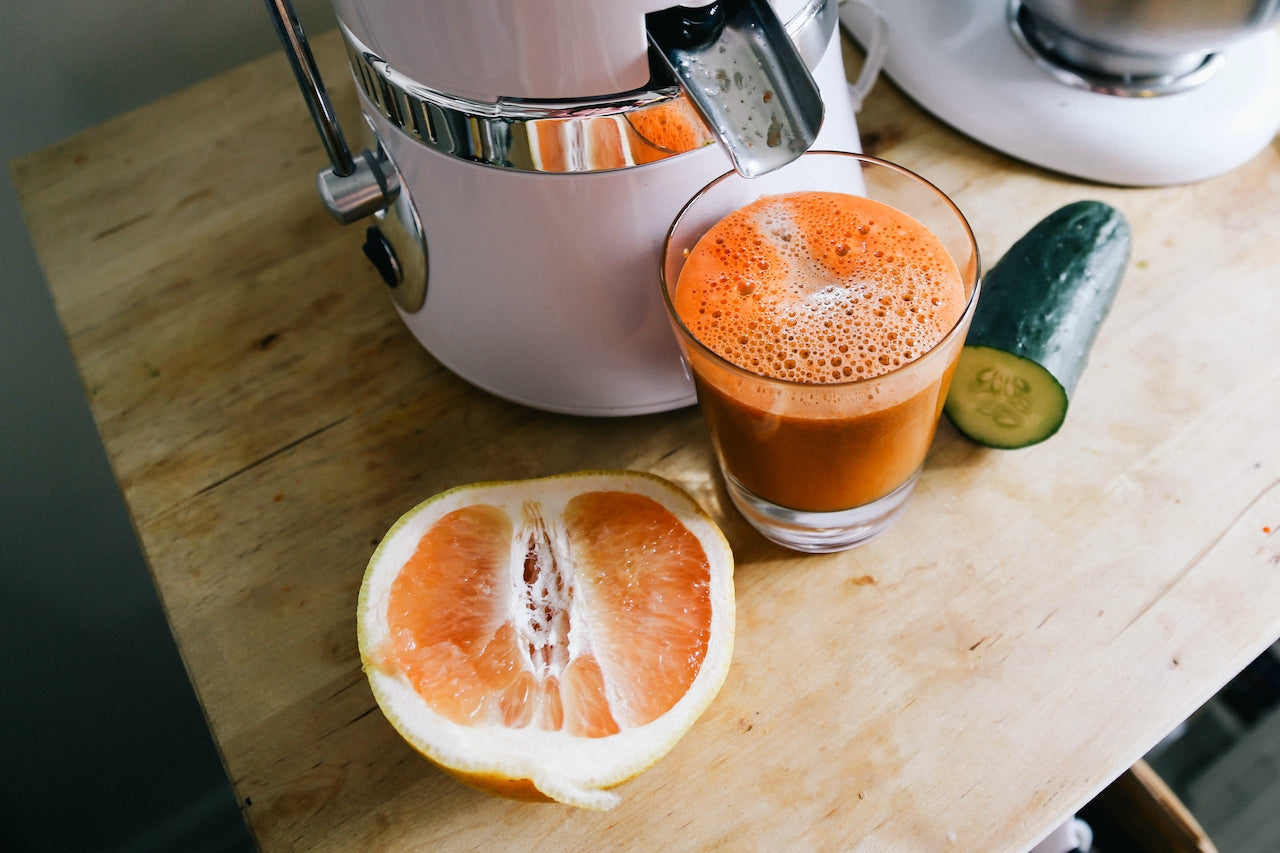Author: Megan Jones (Adv.Dip.NutMed, BSc.NutMed)
If watery red eyes, a runny nose, sneezing, and coughing sound like familiar symptoms to you and are a sure bet that spring is in the air, you are not alone! Sadly, upwards of 30% of the global population is afflicted by allergic rhinitis (aka the dreaded ‘hay fever’).1
With millions of people suffering from seasonal allergies triggered by airborne pollen, and not just in spring but in summer and autumn too, the latest in alarming research suggests these numbers will rise in our changing climate.2
In this article, we'll look at the connection between our gut health and allergies and look to uncover solutions such as a daily dose of Nuzest’s multi-nutrient formula Good Green Vitality – to help us all foster a healthier gut and, of course, allergy relief!
Key takeaways:
- The trillions of bacteria and other microbes in our gut play a significant role in how we respond to allergens like dust, pollen, gluten, and more!3
- Alteration of the gut microbial population (dysbiosis) may increase the risk for allergies and other conditions.4
- Consuming a varied diet based on whole foods and a wide variety of nutrients alongside pre and probiotics can help support the proliferation of good bacteria in our microbiome – strengthening our body’s defense systems and supporting a reduction in the risk of allergic reactions.5
- Overuse of antibiotics without adopting a dietary protocol, including pre and probiotic use throughout the course, can lead to a reduction in our gut diversity and increase the risk of developing dysbiosis and further infection.6
The influence of our gut microbiome
While many of us are aware that our gastrointestinal system houses a complex ecosystem of trillions of bacteria, collectively known as our gut microbiota, it may be surprising to hear these tiny inhabitants have a considerable impact on our immune system. In fact, the state of our digestive system plays such a vital role in our overall health and well-being that our response to allergens can depend on it!7
It is well established that our gut microbiome can actually regulate the body’s immune response - through multiple chemical interactions within our immune system. Paramount to controlling and eliciting the right and appropriate immune response is the balance of our Th1 and Th2 helper cells' activity.8,9
What this means is that when the delicate balance of our gut microbiota is disturbed, through poor dietary choices or large amounts of stress, for example, our immune system’s ability to distinguish between harmless substances and potential threats can become compromised - leading to allergic reactions. These reactions include but are not limited to hay fever, digestive discomfort, eczema, asthma, and even life-threatening anaphylaxis.10
Fun fact: The largest density of immune cells in the body is in the small intestine!11
How can food and nutrition impact allergies?
We now know that a balanced gut microbiome contributes to our immune system regulation - decreasing the likelihood of us developing allergies.
With what we know about our gut microbiota playing a pivotal role in modulating our susceptibility to allergies, however, some of us may still be wondering about the role that nutrition has in optimizing our gut health.
Did you know: That adopting a balanced and diverse diet, rich in prebiotics and probiotics, we can nurture our gut microbiota, support our immune defenses, and reduce the risk of allergic reactions?12
Here are our 5 top tips for nurturing your gut and therefore reducing the risk of developing allergies, through nutrition:
1. Eat more plants!
Consuming a variety of colorful fruits, vegetables, whole grains, nuts, and seeds can provide essential nutrients and prebiotic fibers for our gut microbiota.13
2. Stay hydrated.
Drinking plenty of water can support a healthy digestive system and maintain gut mucosal integrity, which is key when it comes to maintaining balance in the gastrointestinal system, and thus decrease the likelihood of an allergic response.10
3. Adopt a mindful way of eating
Chewing our food thoroughly can aid not only digestion but also nutrient absorption in the gut.14
4. Incorporate both prebiotic and probiotic foods into your daily diet
Incorporating fermented foods like yogurt, kefir, kombucha, and fermented vegetables is a way to introduce beneficial bacteria to our gut.15
5. Avoid overuse of antibiotics or antimicrobial products
Overuse of antibiotics can disrupt our gut microbiota by reducing species diversity and altering the metabolic activity within our gastrointestinal system.16 When we are prescribed antibiotics, it is important to make sure we follow our healthcare provider's instructions carefully and be aware of the importance of replenishing our gut with pre and probiotic treatment after antibiotic use. Studies have shown that doing so can promote species diversity and support an increase in resilience against infection.17
With Nuzest’s Good Green Vitality containing over 75 wholefood and plant-based ingredients, why not incorporate one simple, daily serve into your nutritional routine? Not only nourishing our gut microbiome and reducing our risk of developing allergies, Good Green Vitality also supports all 11 body systems, contributing to our overall health and well-being.
References:
- Schmidt CW. Pollen Overload: Seasonal Allergies in a Changing Climate. Environmental Health Perspectives. 2016 Apr;124(4).
- WAO White Book on Allergy [Internet]. 2011 [cited 2023 Jul 26]. Available from: http://www.worldallergy.org/UserFiles/file/WAO-White-Book-on-Allergy_web.pdf
- Nance CL, Deniskin R, Diaz VC, Paul M, Anvari S, Anagnostou A. The Role of the Microbiome in Food Allergy: A Review. Children [Internet]. 2020 May 26;7(6). Available from: https://www.ncbi.nlm.nih.gov/pmc/articles/PMC7346163/
- Hua X, Goedert JJ, Pu A, Yu G, Shi J. Allergy associations with the adult fecal microbiota: Analysis of the American Gut Project. EBioMedicine. 2016 Jan;3:172–9.
- D’Auria E, Peroni DG, Sartorio MUA, Verduci E, Zuccotti GV, Venter C. The Role of Diet Diversity and Diet Indices on Allergy Outcomes. Frontiers in Pediatrics. 2020 Sep 15;8.
- Ribeiro CFA, Silveira GG de OS, Cândido E de S, Cardoso MH, Espínola Carvalho CM, Franco OL. Effects of Antibiotic Treatment on Gut Microbiota and How to Overcome Its Negative Impacts on Human Health. ACS Infectious Diseases. 2020 Jul 31;6(10):2544–59.
- Zhang YJ, Li S, Gan RY, Zhou T, Xu DP, Li HB. Impacts of Gut Bacteria on Human Health and Diseases. International Journal of Molecular Sciences [Internet]. 2015 Apr 2;16(12):7493–519. Available from: https://www.ncbi.nlm.nih.gov/pmc/articles/PMC4425030/
- Pascal M, Perez-Gordo M, Caballero T, Escribese MM, Lopez Longo MN, Luengo O, et al. Microbiome and Allergic Diseases. Frontiers in Immunology [Internet]. 2018 Jul 17;9. Available from: https://www.frontiersin.org/articles/10.3389/fimmu.2018.01584/full
- What is the difference between Th1- and Th2- T cells? [Internet]. Enzolifesciences.com. 2021. Available from: https://www.enzolifesciences.com/science-center/technotes/2021/june/%20what-is-the-difference-between-th1--and-th2--t-cells?/
- Parrón-Ballesteros J, Gordo RG, Juan Carlos López-Rodríguez, Olmo N, Villalba M, Batanero E, et al. Beyond allergic progression: From molecules to microbes as barrier modulators in the gut-lung axis functionality. 2023 Jan 30;4.
- Santaolalla R, Fukata M, Abreu MT. Innate immunity in the small intestine. Current Opinion in Gastroenterology. 2011 Mar;27(2):125–31.
- Singh RK, Chang HW, Yan D, Lee KM, Ucmak D, Wong K, et al. Influence of diet on the gut microbiome and implications for human health. Journal of Translational Medicine. 2017 Apr 8;15(1).
- Holscher HD. Dietary Fiber and Prebiotics and the Gastrointestinal Microbiota. Gut Microbes. 2017 Feb 6;8(2):172–84.
- Cherpak CE. Mindful Eating: A Review Of How The Stress-Digestion-Mindfulness Triad May Modulate And Improve Gastrointestinal And Digestive Function. Integrative Medicine (Encinitas, Calif) [Internet]. 2019 Aug 1;18(4):48–53. Available from: https://pubmed.ncbi.nlm.nih.gov/32549835/
- Leeuwendaal NK, Stanton C, O’Toole PW, Beresford TP. Fermented Foods, Health and the Gut Microbiome. Nutrients [Internet]. 2022 Apr 6;14(7):1527. Available from: https://pubmed.ncbi.nlm.nih.gov/35406140/
- Ramirez J, Guarner F, Bustos Fernandez L, Maruy A, Sdepanian VL, Cohen H. Antibiotics as Major Disruptors of Gut Microbiota. Frontiers in Cellular and Infection Microbiology. 2020 Nov 24;10.
- Preidis GA, Versalovic J. Targeting the Human Microbiome With Antibiotics, Probiotics, and Prebiotics: Gastroenterology Enters the Metagenomics Era. Gastroenterology [Internet]. 2009 May 1;136(6):2015–31. Available from: https://www.ncbi.nlm.nih.gov/pmc/articles/PMC4108289/
